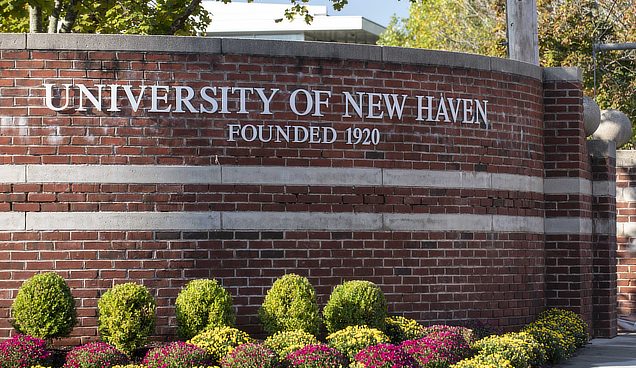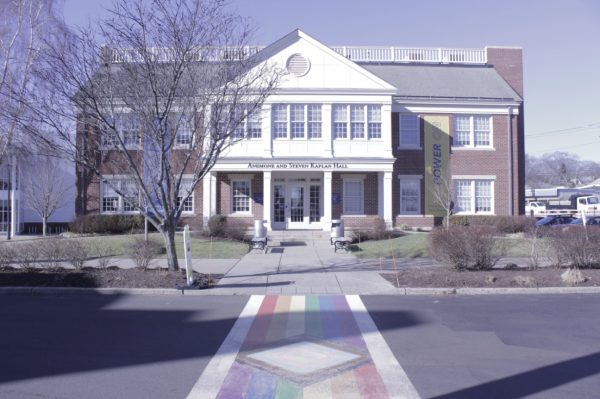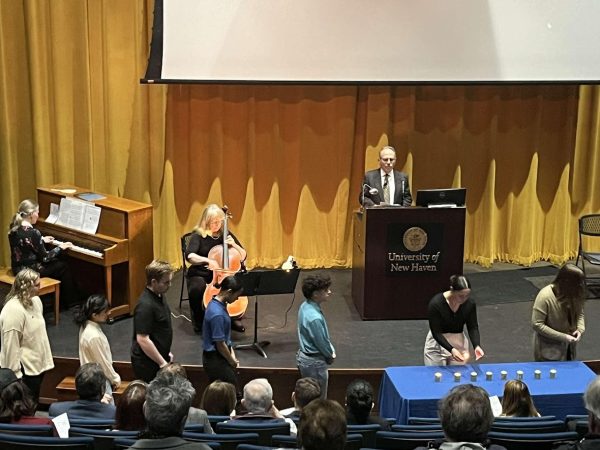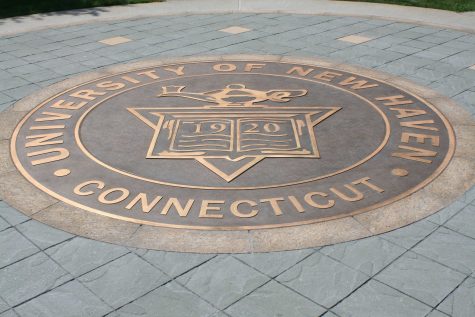How have students’ academic lives been affected by university COVID adjustments?
In response to the COVID-19 pandemic, the University of New Haven shifted to, approximately, a 30 percent remote learning format in order to “minimize any disruption of the academic calendar and student schedules” during the fall 2020 semester, according to a June 22 email to students. Though remote learning may be the best option to “prioritize the health and well-being” of New Haven students, is it the best option for all students to get the most out of their academics?
Communication professor Maxwell McGee said, “I have noticed a slight decline in students’ grades in class. The transition into this new online world is not an easy one, and now, even some of my top students are having a difficult time with assignments and submitting work in a timely manner.”
According to a University of Colorado study, 40.6 percent of students believe that they are working harder to maintain their grades since the start of the pandemic and online classes; 43.4 percent of students say that their academic experience has declined after beginning an online learning format.
Rachael Fortier, junior criminal justice major, has two fully online courses this semester. She said that her grades have experienced a decline since the university’s learning format changed in the fall and is finding it hard to stay engaged in class.
“I do not think that I would take online classes if it was not for the virus,” said Fortier, “For some of my classes, it is one of the only options because of the virus. It is hard to stay away from online classes.”
Junior forensic science major Morgan Fitch, who is taking two hybrid and two online courses, said, “I don’t feel that engaged in my online classes. I don’t have to turn on my camera, I don’t have to talk, and the professors just lecture at you. There’s really no way to be engaged. I would much rather everything be in person but understand how that’s not possible right now.”
Junior criminal justice major Emily Brown, however, said, “I feel engaged in my classes, but I feel that there is an increase in the amount of coursework to compensate for what is lost in face-to-face discussions.”
“I miss being in the classroom,” said biology professor Rozina Jaser. “I miss reading my students’ body language, their facial expressions. All tools that help me better educate them. I shared this with my students this semester. I told them that, although they are not required to share their videos, I miss seeing their faces.”
McGee said that he has been able to come up with productive ways to keep his students engaged in his virtual classes, “I try to take advantage of every piece of the technology, switching from PowerPoint to videos, then to the whiteboard, then back to videos, showing pictures, creating hands-on exercises, and even starting class off with a 5-10 minute ‘chat’ where we take a fun poll together such as ‘What’s your favorite season?’ and then talk about it.”
Jaser has also tried to make things more fun. She said, “I’ve started a fun ‘dad-jokes segment’ in my Zoom sessions. I started sharing some a few weeks ago to leave them on a positive note, with smiles. Now, the students have started offering their own. It’s been great!”
Students, however, have felt an increase in stress and anxiety because of their lower grades in some of their online classes.
Fortier said that her mental health has been affected because of her grade decline and “because it was hard to stay motivated and do work when we weren’t able to really have any human contact outside of our family units.”
“I struggle with mental health to start with and now with the pandemic, I’m being hit hard,” said Fitch. “My grades are lower which makes me anxious and that anxiety causes me to not be able to function well which leads to lower grades. And it’s just a continuous cycle.”
“Students and I have done well to overcome the distance together,” health sciences professor Michael French said regarding his students’ mental states. “We’ve still been able to have great conversations regardless of the format used. In my experiences, students are working harder than ever to turn in quality work in spite of the obstacles they’re facing.”
Jaser said that students are carrying the anxiety and “stress of battling situations due to social and environmental changes they’re enduring, especially as college students,” and this, according to a Suicide Prevention Resource Center study, contributes to a decline in grade point averages among students.
Overall, though, Fortier said that faculty have been lenient and understanding in regard to deadlines. “I personally do not feel more pressure than in other years. All of my professors have been very understanding if I needed extra time to complete an assignment.”
Brown said, “I do not feel more pressure, if anything I feel that professors are more understanding and empathetic than ever before.”
For academic assistance, students can set up a virtual appointment with the writing center, the Center of Student Success or the Center for Learning Resources. For mental health aid, students can visit Counseling and Psychological Services support groups, including one on COVID Adjustment.

Amanda is a senior majoring in communication with a concentration in journalism, and a double minor in political science and English. She has been involved...














